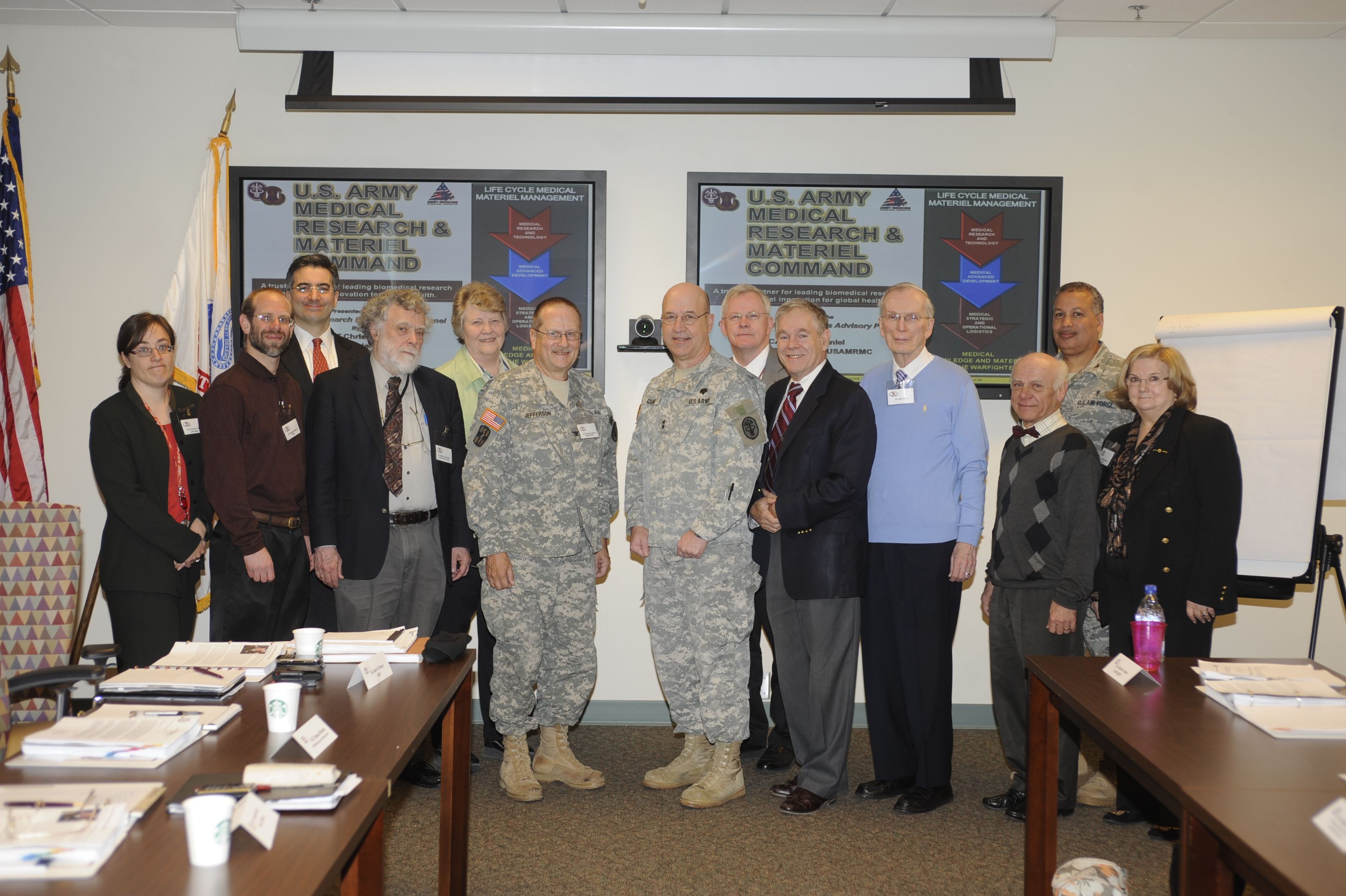USAMRMC Research Ethics Advisory Panel hosts Orientation Meeting

The U.S. Army Medical Research and Materiel Command Office of Research Protections hosted an orientation meeting, March 22, for the members of the newly-formed Headquarters USAMRMC Research Ethics Advisory Panel.
"Today is a historic day for us, as we add a new capability for expert research ethics consultation to our HQ review processes," said Dr. Laura Brosch, director of the Office of Research Protections.
Maj. Gen. James Gilman, commander of the U.S. Army Medical Research and Materiel Command, delivered the opening remarks, welcoming panel members to the orientation conference. The HQ USAMRMC Research Ethics Advisory Panel is a new initiative established initiative by the commanding general to advise the HQ USAMRMC on complex ethical issues related to the conduct of specific research protocols and programs of research. This diverse panel of DoD and non-DoD nationally recognized subject matter experts have been tasked with providing independent expert advice in their individual capacities to USAMRMC leaders and the Director of the Office of Research Protections.
"In case there is any doubt of what I expect of you, I expect you to tell me the truth, whether I like it or not," said Gilman.
Navy Capt J. Christopher Daniels, deputy commander of the USAMRMC, started off the meeting with the first presentation of the day, an overview of who the USAMRMC is as well as its mission to lead the way in joint services (Army, Navy, Air Force) biomedical research.
Throughout the day, the emerging complexity of USAMRMC supported research was described and the HQ system of compliance oversight was discussed which included the ethical and regulatory challenges that may occur in innovative, groundbreaking and potentially controversial human research.
The day concluded with the HQ USAMRMC REAP facilitator, Kim Odam, outlining the procedures for panel operations.
The HQ USAMRMC REAP consists of a standing panel of subject matter experts in the following areas relevant to USAMRMC-supported research: Clinical Ethics; Research Bioethics; Behavioral Health; Neuroscience; Pharmacology; Trauma/Critical Care; Oncology; Infectious Disease; Hematology; Pediatrics; Regulatory Compliance/Legal. Members hail from diverse civilian institutions such as the National Institutes of Health, Columbia University, and Hood College in addition to DoD organizations that include the Uniformed Services University of the Health Sciences.
The HQ USAMRMC REAP reviews are focused on several categories of research, including but not limited to: gene transfer technologies, Secretary of the Army waiver requests of the 10 USC 980 requirement for advance informed consent in planned emergency research; complex ethical, risk/benefit, and/or other safety, rights and welfare issues in human research; and research non-compliance cases as determined necessary. Panel members have been and will be selected based on subject matter expertise to address focused questions related to specific research issues. Each member will provide an analysis and make recommendations that are non-binding, allowing the HQ USAMRMC Office of Research Protections Human Resource Protection Office to identify possible courses of action related to the resolution of the complex issues and present them to the Commanding General for approval.
 An official website of the United States government
An official website of the United States government
 ) or https:// means you've safely connected to the .mil website. Share sensitive information only on official, secure websites.
) or https:// means you've safely connected to the .mil website. Share sensitive information only on official, secure websites.


